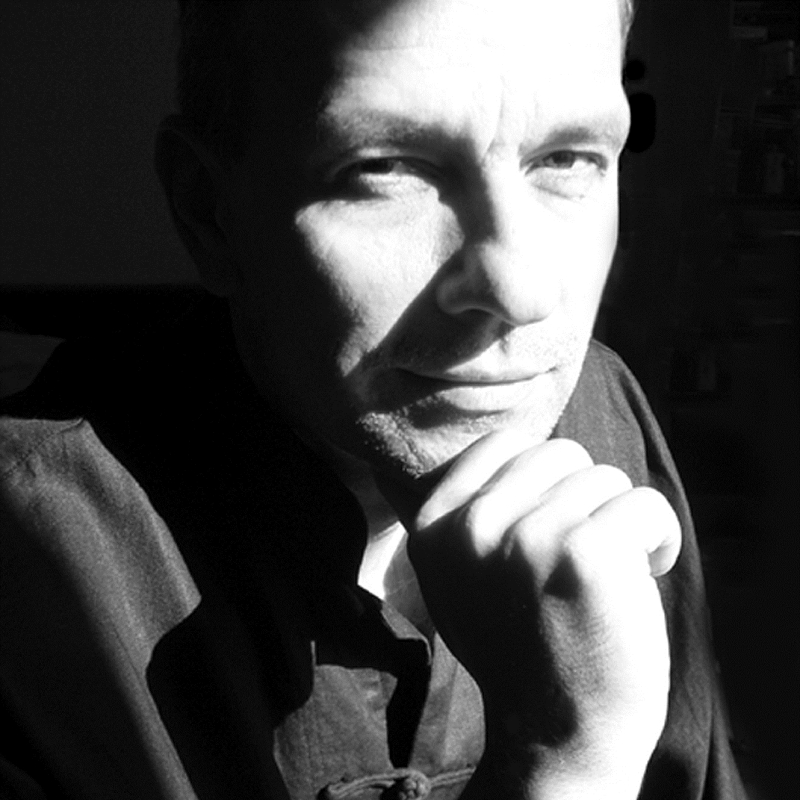Manru
Ignacy Jan Paderewski
Opera in three acts
Libretto: Alfred Nossig
World premiere: 29 May 1901, Dresden
Premiere of this production: 12 October 2018, Teatr Wielki – Polish National Opera
Co-produced with the Poznań Opera House
Sung in Polish with English surtitles
It was not ambition, but financial trouble that brought Paderewski to the shores of America in 1891. The new continent hailed him as a wizard of the keyboard. He himself hoped at the time that the keyboard wouldn’t be the end of it and that the world would grow to appreciate him also as a composer. The draft of his first opera, based on Kraszewski’s novel The Cottage Outside the Village [Chata za wsią], was ready. The libretto was penned by the journalist and sculptor Alfred Nossig, while the composer continued to rework subsequent versions of the piece in his spare time between concerts. It took several years. In the meantime he got married, became a father, was widowed, remarried and lost his son. The handicapped boy died in 1901 – the same year that Manru premiered in Dresden. Next it opened in Lviv a few days later, and in the States in February 1902, making history as the first Polish opera ever to be staged at the Metropolitan Opera. After a brief triumph it became forgotten for many years. What will the director Marek Weiss find in this touching tale of unhappy love played out against the background of a class society – especially in our world of awakening nationalisms and growing intolerance? Without a doubt the lovers’ rapture, gypsy marches and the frenetic element of Paderewski’s only opera will impress with their superb sound world, at the same time surprising us with the piece’s timeless relevance.
-
Time is measured by
-

Cast
Credits
Chorus and Orchestra of Teatr Wielki – Polish National Opera
Dancers of Biały Teatr Tańca (White Dance Theatre)
Extras and children from the ARTOS children choir
Synopsis
Sponsors
-
Mecenas Teatru Wielkiego - Opery Narodowej
-
Partnerzy Teatru Wielkiego - Opery Narodowej
-
Koprodukcja
-
Partnerzy bankietu
-
Patroni medialni
-
Patron medialny premiery






![[Translate to English:] proj. graf. Adam Żebrowski [Translate to English:] proj. graf. Adam Żebrowski](/fileadmin/_processed_/4/7/csm_manru_plakat_352f54acb4.jpg)
![[Translate to English:] Od lewej: Anna Lubańska (Jadwiga), Ewa Tracz (Ulana), Mikołaj Zalasiński (Urok), fot. Krzysztof Bieliński [Translate to English:] Od lewej: Anna Lubańska (Jadwiga), Ewa Tracz (Ulana), Mikołaj Zalasiński (Urok), fot. Krzysztof Bieliński](/fileadmin/_processed_/b/a/csm_manru_BIEL0176_2f09f66817.jpg)
![[Translate to English:] fot. Krzysztof Bieliński [Translate to English:] fot. Krzysztof Bieliński](/fileadmin/_processed_/5/0/csm_BIEL0323_63a827d2e4.jpg)
![[Translate to English:] Peter Berger (Manru), Ewa Tracz (Ulana), fot. Krzysztof Bieliński [Translate to English:] Peter Berger (Manru), Ewa Tracz (Ulana), fot. Krzysztof Bieliński](/fileadmin/_processed_/0/3/csm_manru_BIEL0362_615c41091e.jpg)
![[Translate to English:] Peter Berger (Manru), fot. Krzysztof Bieliński [Translate to English:] Peter Berger (Manru), fot. Krzysztof Bieliński](/fileadmin/_processed_/c/c/csm_manru_BIEL0457_d254e57267.jpg)
![[Translate to English:] fot. Krzysztof Bieliński [Translate to English:] fot. Krzysztof Bieliński](/fileadmin/_processed_/5/a/csm_manru_BIEL0963_0113bc61d0.jpg)
![[Translate to English:] fot. Krzysztof Bieliński [Translate to English:] fot. Krzysztof Bieliński](/fileadmin/_processed_/5/c/csm_manru_BIEL1067_b6b180fcb8.jpg)
![[Translate to English:] fot. Krzysztof Bieliński [Translate to English:] fot. Krzysztof Bieliński](/fileadmin/_processed_/4/4/csm_BIEL1290_aa5700888e.jpg)
![[Translate to English:] fot. Krzysztof Bieliński [Translate to English:] fot. Krzysztof Bieliński](/fileadmin/_processed_/1/5/csm_manru_BIEL1457_76f01b73d3.jpg)
![[Translate to English:] Peter Berger (Manru), Monika Ledzion-Porczyńska (Aza), Łukasz Goliński (Jagu), fot. Krzysztof Bieliński [Translate to English:] Peter Berger (Manru), Monika Ledzion-Porczyńska (Aza), Łukasz Goliński (Jagu), fot. Krzysztof Bieliński](/fileadmin/_processed_/e/a/csm_manru_BIEL1470_ba9c0d07b3.jpg)
![[Translate to English:] fot. Krzysztof Bieliński [Translate to English:] fot. Krzysztof Bieliński](/fileadmin/_processed_/d/2/csm_manru_BIEL1504_1ea52f1087.jpg)
 Mikołaj Zalasiński
Mikołaj Zalasiński  Anna Lubańska
Anna Lubańska  Monika Ledzion-Porczyńska
Monika Ledzion-Porczyńska  Dariusz Machej
Dariusz Machej  Peter Berger
Peter Berger ![[Translate to English:]](/fileadmin/_processed_/a/7/csm_Ewa_Tracz_fot._Karpati___Zarewicz_-_kwadrat_24_d08740d6f3.jpg) Ewa Tracz
Ewa Tracz  Maciej Ufniak
Maciej Ufniak ![[Translate to English:]](/fileadmin/_processed_/1/d/csm_Stanislaw_Tomanek_dla_TW-ON_fot_Karpati_Zarewicz_01_kwadrat_c3c74e283a.jpg) Stanisław Tomanek
Stanisław Tomanek ![[Translate to English:]](/fileadmin/_processed_/f/6/csm_csm_Lukasz_Golinski_1176ab8f54_8b4929cf33.png) Łukasz Goliński
Łukasz Goliński  Tomasz Rak
Tomasz Rak  Kaspar Glarner
Kaspar Glarner  Maciej Igielski
Maciej Igielski  Grzegorz Nowak
Grzegorz Nowak ![[Translate to English:]](/fileadmin/_processed_/4/8/csm_Weiss_cb_67bb2fafc5.jpg) Marek Weiss
Marek Weiss ![[Translate to English:] Izadora Weiss](/fileadmin/_processed_/1/f/csm_Izadora_Weiss_mini_2abf45c540.jpg) Izadora Weiss
Izadora Weiss  Mirosław Janowski
Mirosław Janowski  Bartek Macias
Bartek Macias  Danuta Chmurska
Danuta Chmurska 







